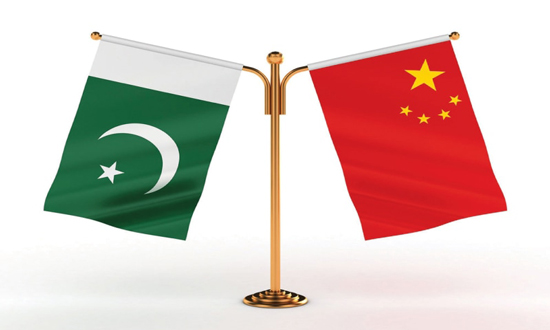By
Dr Muhammad Khan
In his official statement, President Xi Jinping described Pak-China relationship as a “Friendship based on trust and mutual support.” Both are devoted friends of both good and hard times and this friendship is of all times. While the beginning of this friendship started in the 1950s with remote opportunities, have now turned into a unique opportunity of connecting entire Asian region through projects such as China-Pakistan Economic Corridor (CPEC). CPEC is a manifestation of shared interests and common developmental goals, both countries had ever since. The project is aimed to drive practical cooperation of both with focus on Gwadar Port, energy, infrastructure development and industrial cooperation with the ultimate objective of its fruits reaching over to people in Pakistan and the people of China and all other regional countries.
The concept of CPEC is indeed promotion of regionalism and globalization. Globalization can well be defined as global interconnectedness, which is achieved through regional connectivity. The regional connectivity in turn is achieved through the development of communication network between two or more states and even within the boundaries of a state. In summary, the essence of globalization is interconnectedness, achieved through world-wide, “Widening, deepening and speeding up” of communication.
This entire process further integrates the world on all three aspects; the political, economic and social. Overall, the entire process can be interpreted as the ‘time and space compression’, where physical distances though remain same, but, squeezed through the infrastructural development; construction roads, highways, corridors, railways and sea-lane communication. This entire process of interconnectedness is part of gigantic Chinese Project of Belt and Road Initiative (BRI) and CPEC is major part of this colossal project.
China-Pakistan Economic Corridor, though conceived a decade earlier, was formalized into a treaty in 2014. As per the British geographer, Halford John Mackinder, who talked about the heartlands and geographic pivots in his famous article, “The Geographical Pivot of History,” Pakistani geopolitical position fits into the definition of geographic pivot, connecting various regions of Asia politically as well as economically. As part of Chinese ‘One Belt, One Road’ strategy, the CPEC, once fully constructed would integrate India, Afghanistan, Central Asia and West Asia. Through India, other States of South Asia will be direct and indirect beneficiary of the CPEC. The economies of these countries would be connected to the other regions of Asia and even with the global economy. This fact is very much known to India, but, its enmity and rivalry with Pakistan and China is the main factor, why it opposes the concept of CPEC.
Indeed, the CPEC is not a new concept, rather a continuation and expansion of the Karakorum Highway (KKH), constructed in the 1970s through 1980s by Pakistan and China through difficult and very high altitude terrain. It is the same KKH which will be expanded to the level of corridor; the CPEC. Gilgit-Baltistan (GB), has the right to develop and economically grow. The CPEC will further enhance the opportunities for the economic and socio-political development of the GB and other areas, which so far remained backward, somehow. Why should, India oppose development of a community and area, just for the reason that it has illegally occupied and now annexed the major portion of the State of Jammu and Kashmir as Union Territories.
CPEC will provide the greater opportunities for broader regional peace and prosperity. It provides a win-win situation for all; China, Pakistan and all other countries willing to become partners in this gigantic project. As part of BRI, CPEC provides developmental opportunities and space to both Asia and the world.
CPEC will boost the regional integration and economic prosperity, the benefits of which would be for all and India being a major economy will be the major beneficiary. If India can ask for a transit trade route for its economic linkages with Central Asia through Afghanistan, and is a partner of the TAPI, there should be no reason of India opposing the CPEC through political statements and promoting the terrorism along the route of CPEC.
It is expected that both Iran and Afghanistan will show their willingness to become part of this project. The huge hydrocarbons of Iran have their utility in the economically progressing countries like China. The IP gas pipeline has the potential to be further extended to China and CPEC will be the best suited route as energy corridor. Besides, Iran, the Central Asian States have the huge potential and reserves for the contribution to sale in the international markets; China and India being the most energy needy states.
In fact, CPEC is a project which would be the initiator for the long-term regional integration, not between Pakistan and China, but in South Asia and various regions of Asia. This is possible only once the regional states; energy deficient and energy efficient correctly re-asses their future priorities. A well thought-out and deliberated economic integration would pave the way for a wider regional peace, greater political integration and economic prosperity for all member states. (The writer, a retired Brigadier, is a Professor of Politics and International Relations at International Islamic University, Islamabad)










